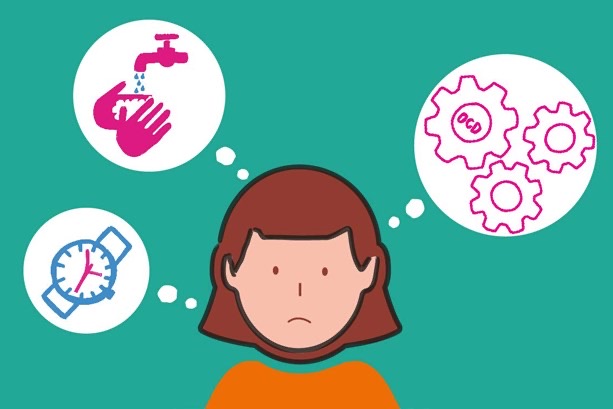Benenden Health
OCD
Obsessive-compulsive disorder (OCD) is identified with excessive thoughts or fears that lead to repetitive behaviors. This can make people meaninglessly repeat actions or themselves. These actions can consist of cleaning, words or phrases, checking, ordering, and arranging.
How does it [OCD] affect your day to day life?
“I think about everything I’m doing but really focused to the point where I can’t function. Sometimes it really annoys me, like when people ask me ‘Oh are you feeling better?’ You can’t magically go to bed one day and wake up and you’re fine. It goes on for the rest of your life, and it’s not something you can wish away.” (Junior at NASH)

Mr. Hull, English and Journalism Teacher
“When I was a kid I was pushed to do things perfectly all the time so now when I don’t do things perfectly and I’m really hard on myself and as a result, I’m just a ‘people pleaser’ to a fault. My mind can’t calm down as a result of that. I always worry about people’s feelings more than my own.” (Mr. Hull, English and Journalism teacher)
How does it make you feel when you hear someone self diagnose themselves or use what you have in the wrong context? Do you feel like that demeans you having it or makes it less serious?
“I’m not super mad, because I know some people are extremely sensitive about it but other people don’t really care as much and I’m kind of in the middle. I think people who are normalizing it like saying ‘You’re so organized; you’re so OCD’, that’s not even the definition of having it. It’s completely different than that. (When asked the follow-up question) There are people that struggle way more than I do, and the fact that they’re dulling down what they go through is really bad, because it’s crippling to people who have it.” (Junior at NASH)
“It does make me mad a little bit. I don’t really speak up because I still have fear of being ‘outed’ as someone who doesn’t quite have it all together all the time. (When asked the follow-up question) Yeah, I think it does. If you had the flu, I’d give you soup and orange juice and tell you not to go to work. But if you have anxiety or you’re terrified of people-pleasing and keep coming back to someone and asking them questions for verification, you’re not taken nearly as seriously.” (Mr. Hull, English and Journalism teacher)
It seems as if some people think of mental illnesses as a “trend”. What is your personal opinion on this?
“It’s so trendy for people to be ‘depressed’ or ‘want to die’ and for people to say ‘I’m so sad I have depression’ or ‘I’m so nervous I have anxiety’. You can’t do that. There are people who can’t leave their houses because they have that. You can’t invalidate what other people are feeling because you’re not happy one day. You can’t stereotype yourself in that regard.” (Junior at NASH)
“I think I’m too old for that because when I was in school you just didn’t talk about it and there wasn’t nearly as much stress when I was in school either. I took the classes that I wanted to take but nobody’s parents really forced them to take AP classes so I think we weren’t as stressed and there wasn’t as much of a push for kids to make those sorts of statements.” (Mr. Hull, English and Journalism teacher)
Are you less willing to open up about it now?
“Yes. I think when people normalize it so much it makes how I’m feeling less important which makes me less inclined to talk about it because I feel like people aren’t going to take me seriously and validate my actual feelings, so it’s not worth it.” (Junior at NASH)
“It depends on who I’m talking to. If I feel cool and safe with you I’ll open up about it but if I feel like you’re close-minded, going to judge me, or not that educated, and I hate to say that but it’s true, I won’t say anything because I don’t want you to think less of me.” (Mr. Hull, English and Journalism teacher)

